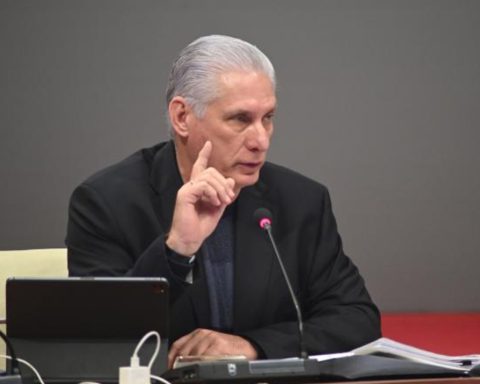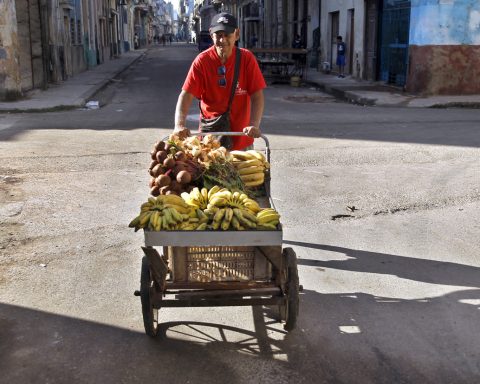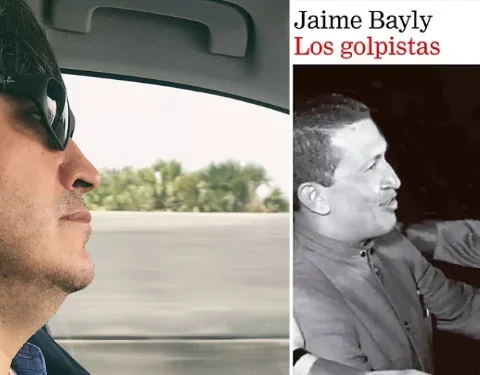“Asere, get down there”, is an expression that can appear on any corner, inside a house or a car, in the middle of the street. In the most unexpected places that voice arises that asks —almost implores— to turn down the music.
I don’t want to sound dramatic, but the issue of music at unsuspected volumes can be a collective mental health problem and, a little more, a national security problem. I suppose that the police are overwhelmed by complaints about the loud music and that only a large operation of regular troops could guarantee, at least for a few hours, a noise-free city.
Beyond the irony, it is true that the problem is big. Music projected at high decibels loses that condition and becomes noise, a lot of noise, annoying noise, violent noise.
Access to audio reproduction equipment is no longer a luxury. More and more people have one, of one kind or another. They exist in the most varied formats and with the most diverse powers. You can find, for example, a baffle more than a meter high in the doorway of a house, even on the sidewalk. Portable speakers abound, which can break into a bus, at a bus stop, in a park, in the basement of a building, at the door of the warehouse, in a barbershop, in a paperwork office, etc.
A very particular specimen cannot be missing from the list: the reproducers for cars and motorcycles; those that are announced as if they were fire or ambulance sirens. They approach, attack you and continue long leaving their trail of noise. Those that are a martyrdom if they reach you within the limits of a red light.
This type of sound aggression, more everyday than we would like, has among its common denominators a type of sound mix with a strong bass, a monotonous beat and an unlimited capacity to repeat the same thing over and over again. I suppose it’s a kind of command: the baffle, that “music” and the high volume; an assault troop against peaceful coexistence, a task force to intimidate anyone who wants to walk calmly through the city.
And here is the first problem: the manifest, latent, out-of-control violence that is revealed in the imposition, as a Darwinian relationship, of those noise levels. When looking inside the matter, the relationship between the public and the private appears, the institutions and their effectiveness, the limits of the right in front of the others and the others, and that old problem of the laws that are not fulfilled.
In the skein the naturalization of noise emerges as part of coexistence; listen loud, say loud, shout instead of talking; even the impunity of having to live subjected to unwanted volumes.
When someone, in all their right, asks that they “get down that”, there are two types of recurring responses: “I’m at home” or “The street is for everyone”.
There are laws, rules and regulations for noise exposure levels and hours that limit it. Even a call to the police can, in many cases, prevent conflicts between neighbors due to loud music during rest hours. But it’s not enough.
In this distortion between the individual and the collective, in this dispute between aesthetic senses, in this tension between common life values, indolence, violence and deterioration of the peaceful and harmonious life prevail, which must be the predominant character of all community.
There is an expression that, if it weren’t for the drama it contains, would be very nice: “Asere, I’m going to put the baffle on you”, which means that they will say offensive things to you out loud. The expression condenses the violent character, in all its variants, which means living at full volume.
I open a parenthesis. As I write this, I am suffering from the perfect storm from a nearby horn, from which I get no more than a tun tun tun tun like impertinent hammering; the screams of some young people who define the future of world football and brandish the most unexpected insults against this or that player; and “the ground peanut bar, the chicharrón de viento and the cremita de leche” that he proclaims from a monotonous recording, also with high volume, a street vendor. I close parentheses.
The noise generated by loud music, the constantly rising levels of the voice, are connected with the contents —in general, just as violent— of what is heard and what is said when the verb to speak is confused with that of shout out; when the noise is confused with music; when stridency is confused with freedom and rights.
Noises are a social pollutant, a cultural limit, a political stressor. They feed a cycle of violence, disagreement, tension. Living with aggressively loud music, with permanently raised voices, with howling and debauchery as a habit, makes us fatten the signs of poverty.
“Asere, that music has me altered”, is another of the visible, bearable consequences of the habit of confusing celebration and enjoyment with a constant state of debauchery. It’s a habit that doesn’t go down well with those who enjoy talking with a sense of well-being; for whom listening to and thanking music is an act of beauty; for whom singing, together and together, is a fact of collective freedom.
A few days ago I told a friend “Speak louder because I don’t understand you”; to which she replied: “I speak softly so that people come closer.”
It’s true, noise drives us away, makes us connect in tension. Talking softer brings us together; listening to music with more intimacy brings us closer, enriches us, makes us better people or at least more satisfied with the proximity of our peers.
Sometimes, beyond the momentary discomfort, we do not consider noise as a larger problem. It might seem like a forced idea, but good noise management, awareness of the problem it entails, are an educational challenge for a better relationship between daily life and politics.
Yes, it is true that not everything is political, as it is also true that politics is in everything, that is why it would be good, next time, to be able to say: “Asere, turn down the music a bit; na’, to have a more beautiful country”.

















